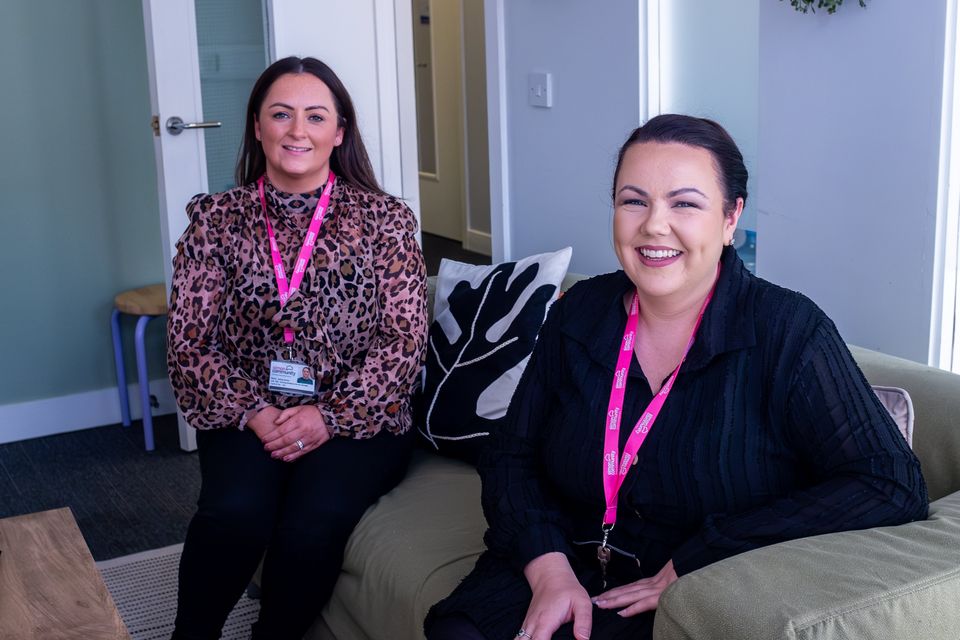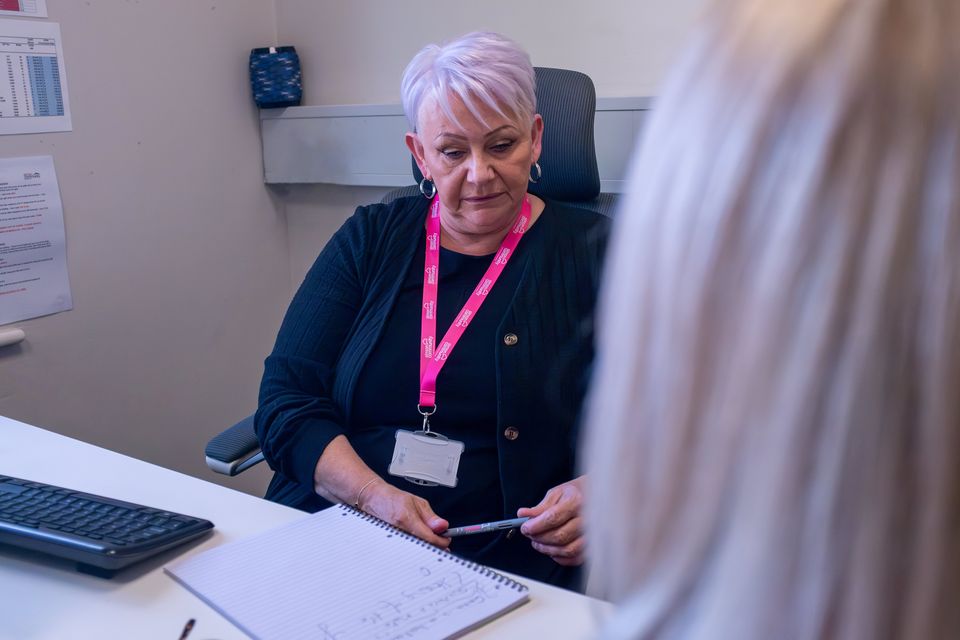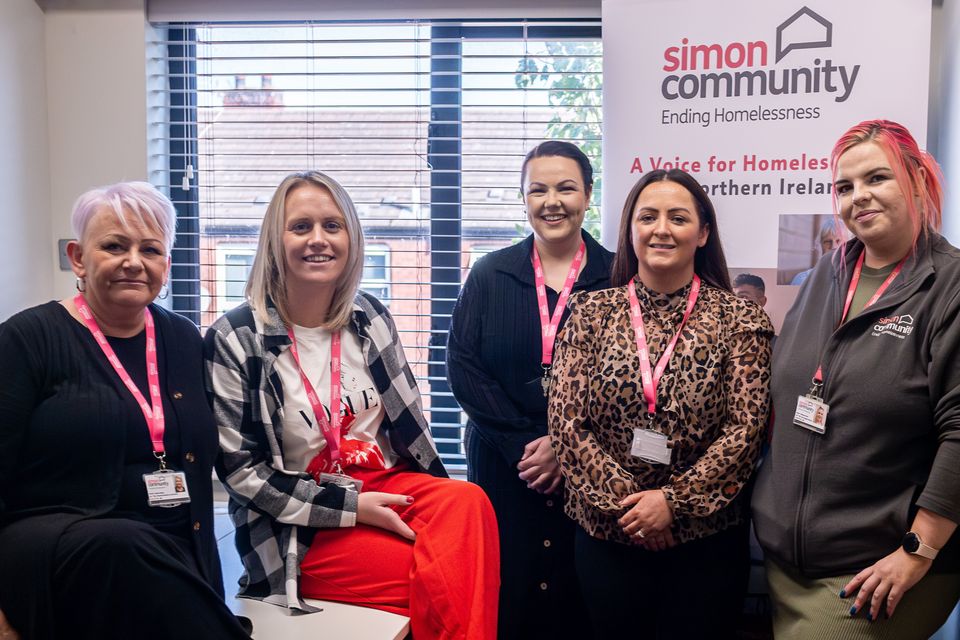Every year the Simon Community receives around 16,000 calls from people who have found themselves homeless or need support.
Dedicated staff at the charity work around the clock for clients who come from every walk of life.
The Belfast Telegraph spent the day with the Housing Solutions team to get a glimpse of how it works.
“We’ve always been busy, but it was during the Covid pandemic when the homelessness issue really took hold and ramped up,” says service manager Aisling Devine.
With the crisis showing no signs of abating, the Simon Community is busier than ever.
By the end of March, there were 47,312 households, or around 86,000 people, on the social housing waiting list.
Demand is outstripping supply because of a lack of funding. Between the 1970s and 1990s, around 4,5000 social homes were built each year. The target for social home ‘starts’ — not completions — in 2024/25 is between 500 and 600.
The charity was set up in 1971 to provide soup for rough sleepers in Belfast city centre.
It has grown exponentially and now has 464 beds across Northern Ireland.
In the space of one week in June, however, only 10 of these beds were free as the housing solutions team received 425 requests from people desperate for somewhere to stay.
The charity provides a range of services to its clients, whether it be helping them get a permanent home through its tenancy deposit scheme, or support with addiction issues.
The Simon Community also runs a homelessness support line and provides ‘move on’ packs for people entering into new accommodation. These packs include mattresses, bed linen, air fryers, cutlery and household essentials such as toilet roll and bin bags.
Aisling and Melissa at the charity’s base
The charity works with stakeholders including the Housing Executive, Belfast Trust and the Prison Service.
Every four to six weeks, members of the Housing Solutions team run clinics, visiting clients and helping with any issues they have.
We met two clients, one who received advice on finding a permanent home in the private sector, and another who recently became homeless and needed help dealing with the Housing Executive.
Some of the people seeking help have no access to funds.
“We deal with a range of clients, many of whom can be quite vulnerable. They may have been living on the streets, or fleeing domestic violence,” says housing solutions coordinator Melissa Mallon.
“Everyone is different, and we give them whatever help we can. The first call they make to us is always the hardest. Just asking for help can be incredibly difficult for people, so we try our best to put them at ease.
“Some people want advice, others just want someone to listen when they are struggling. Our clients haven’t done anything wrong, they’ve just fallen on hard times.”
Some 79% of people in Simon Community accommodation have a mental health issue.
As well as running hostels and other forms of temporary accommodation, the Simon Community runs a Creating Homes programme.
To help address the chronic lack of affordable housing, the charity began purchasing properties a few years ago.
It has bought, or has sales agreed on, 22 properties, and aims to have 300 owned or managed homes by 2027.
It introduced a tenancy deposit scheme in 2018 to help people access the private rented sector.
Catrina Keays
It was originally for people living in the charity’s temporary accommodation but was expanded in 2020 to help people across Northern Ireland experiencing, or at risk of, homelessness.
Since its introduction, the scheme has provided 500 deposits.
The Housing Solutions team says one increasingly worrying trend is the rising number of people in full-time work reaching out for help.
Aisling explains: “We’ve had people working full-time jobs but living in their cars. Others need help with making ends meet, with the food shop or getting heating oil.
“At the end of the day it’s all about our clients.”
Catrina Keays, Emma Murray, Melissa Mallon, Aisling Devine and Shannon Irvine
Speaking with members of the team, what comes across is the sense of dedication to their work.
“When you see how much of a difference you can make to families by helping them, it just makes you smile from ear to ear, and sometimes cry,” says Melissa.
Aisling adds: “It may sound strange, but the best thing for us is whenever we help someone and never hear from them again. That’s fantastic because it means they’ve found their feet.”
For more information on Simon Community, visit simoncommunity.org. The One Big Sleep Out event will take place at Stormont on October 11. Sign up or get more information at simoncommunity.org/get-involved/events/one-big-sleep-out-2024


